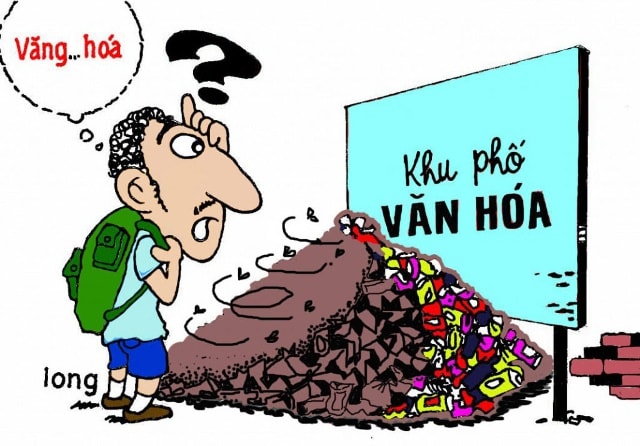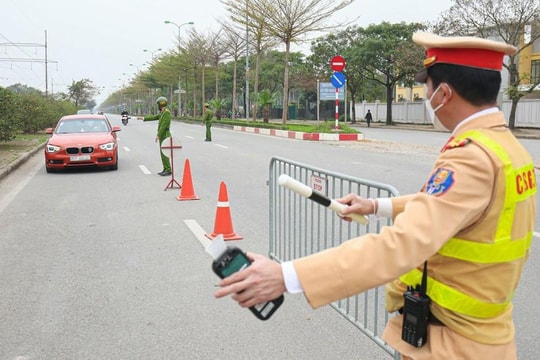Speaking of cultural behavior…
(Baonghean) - Due to the nature of my work, I often work abroad. The places I visit are mostly Southeast Asian countries. What is special to me is not that the country is rich, civilized, has golden forests, silver seas, etc., but the way people treat each other.
That is Cambodia, a country I often visit. I like their politeness. Even though they are strangers, they still have affectionate looks and friendly gestures. Many times, our tour group collided with their cars and Tuk Tuks, but instead of being angry and annoyed, they backed up to let the passengers pass and clasped their hands and bowed their heads.
A purely national but very beautiful way of socializing. Many Vietnamese visitors think that it is because their country has no resources, most of the goods are imported, only relying on tourism so they try to "please". That is also true but not enough. The cultural behavior of a person, good or bad, is due to habits in the community, due to a long period of education...
 |
| Illustration photo. |
Our country has rich resources, scenic spots (many of which are even recognized by UNESCO as world heritage sites) stretching from North to South, which is convenient for tourism. Vietnam's tourism industry is also developing, although not as much as some countries in the region, showing that we focus on the service sector.
However, the point to discuss here is that the behavior of Vietnamese people is not polite, especially in big cities, where millions of people flock to live and make a living. Therefore, the tourism industry is more or less affected. "One bad apple spoils the barrel" - some individuals have never thought so, so the image of fighting and cursing each other because of small conflicts happens every day.
For example, when there is a car accident, instead of the wrong person or both parties apologizing and making peace, or politely arguing, or asking the traffic police to resolve the issue, they argue and then fight, sometimes resulting in murder. Not only men, but women also get involved. They are ready to pull hair, curse, and beat up the customer just because they did not buy or paid too low a price.
What is even sadder is that today’s Vietnamese youth, while still in school, have an aggressive temperament. They are ready to beat up their friends for no reason or form cliques to bully their weaker friends. A male student who lifted a stack of chairs and smashed it on the head of a female student in the same school (in Tra Vinh) showed that he is “not worthy of being a man”, let alone physically abusing others.
Or two girls under 18 years old made an appointment to go to Nguyen Hue walking street (District 1, Ho Chi Minh City) to fight because they were criticized for being ugly. That is not to mention some restaurants, relying on their family tradition, "popularity", then being "snobbish" and having the right to scold "customers".
Or some restaurant owners, because customers complained about charging too high prices, were not satisfied and were threatened to be beaten, or beaten to the point of hospitalization and almost lost their lives.
It is time for some Vietnamese people to give up their aggressiveness to change the face of the city in particular and of Vietnam in general. Don’t let friends from all over the world come once and then run away just because they see some individuals who are too aggressive, “if they don’t like someone, they beat them and cause trouble”.
To do that, of course, it is necessary to go through a long, systematic process. But slow is not late, but sure. Didn’t the Japanese spend hundreds of years to develop a culture of queuing, a business culture, a culture of patience…
Schools and families need to educate children from an early age through vivid, practical lessons (not just on paper), so that children know how to behave well between people. On the other hand, adults should restrain their aggressiveness, behave politely to set an example for children and to maintain politeness and harmony as a habit.
It is true that everyone gets angry sometimes, but we need to know how to control it and act humanely instead of fighting. If we can do that, not only will the Vietnamese tourism industry develop, but other industries and the Vietnamese economy as a whole will prosper and grow; the Vietnamese people will also be famous all over the world for their cultured behavior./.
Loyal








